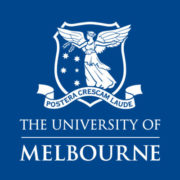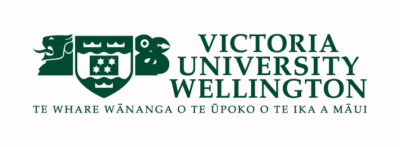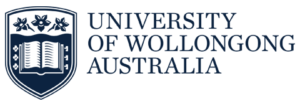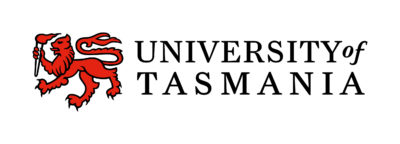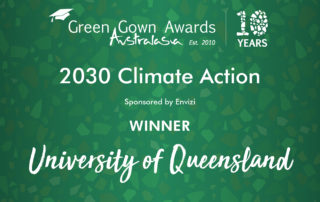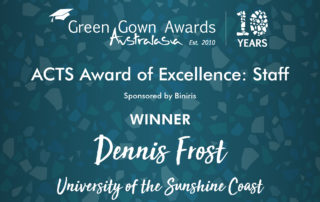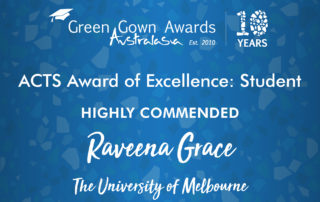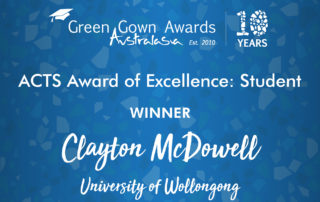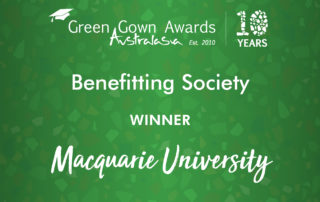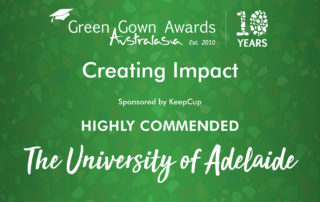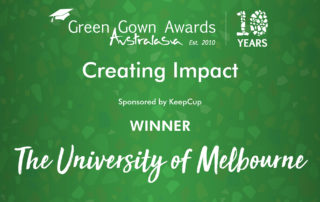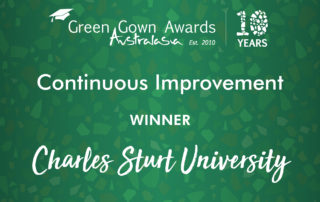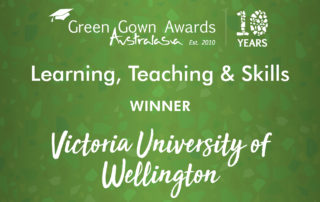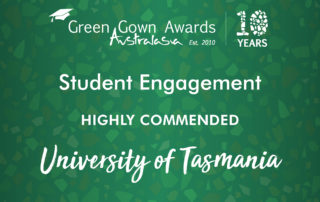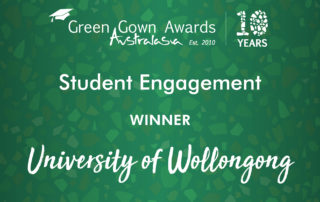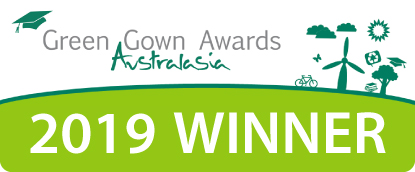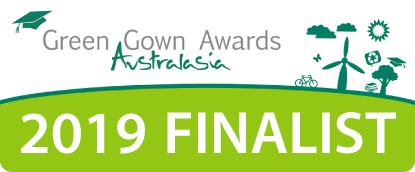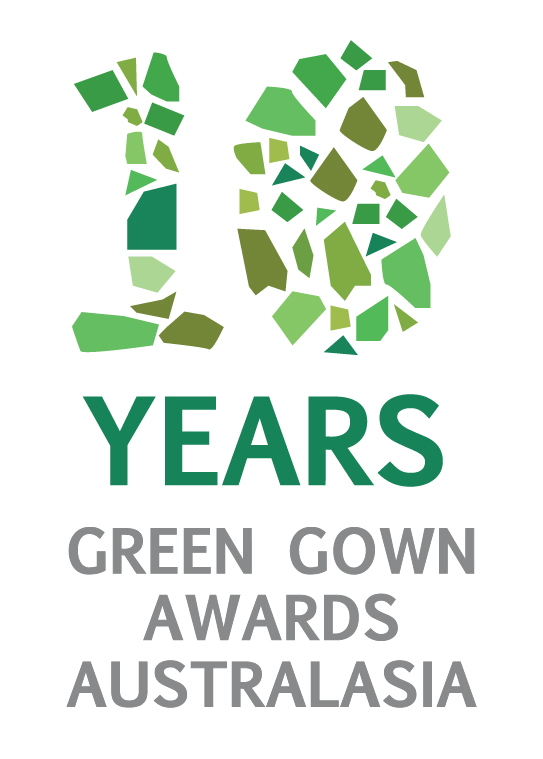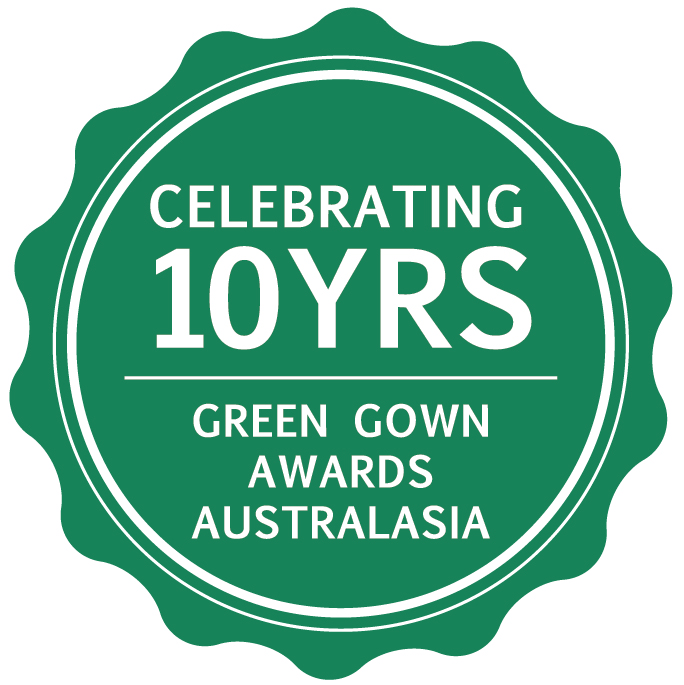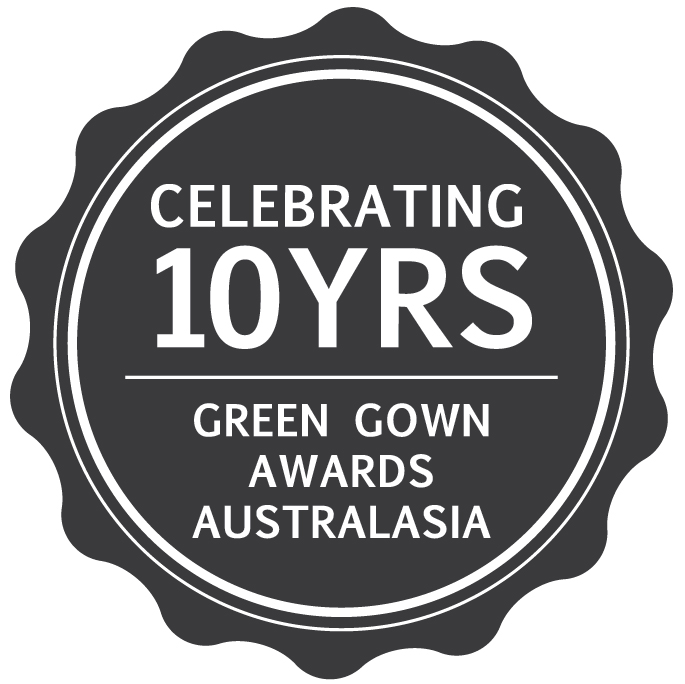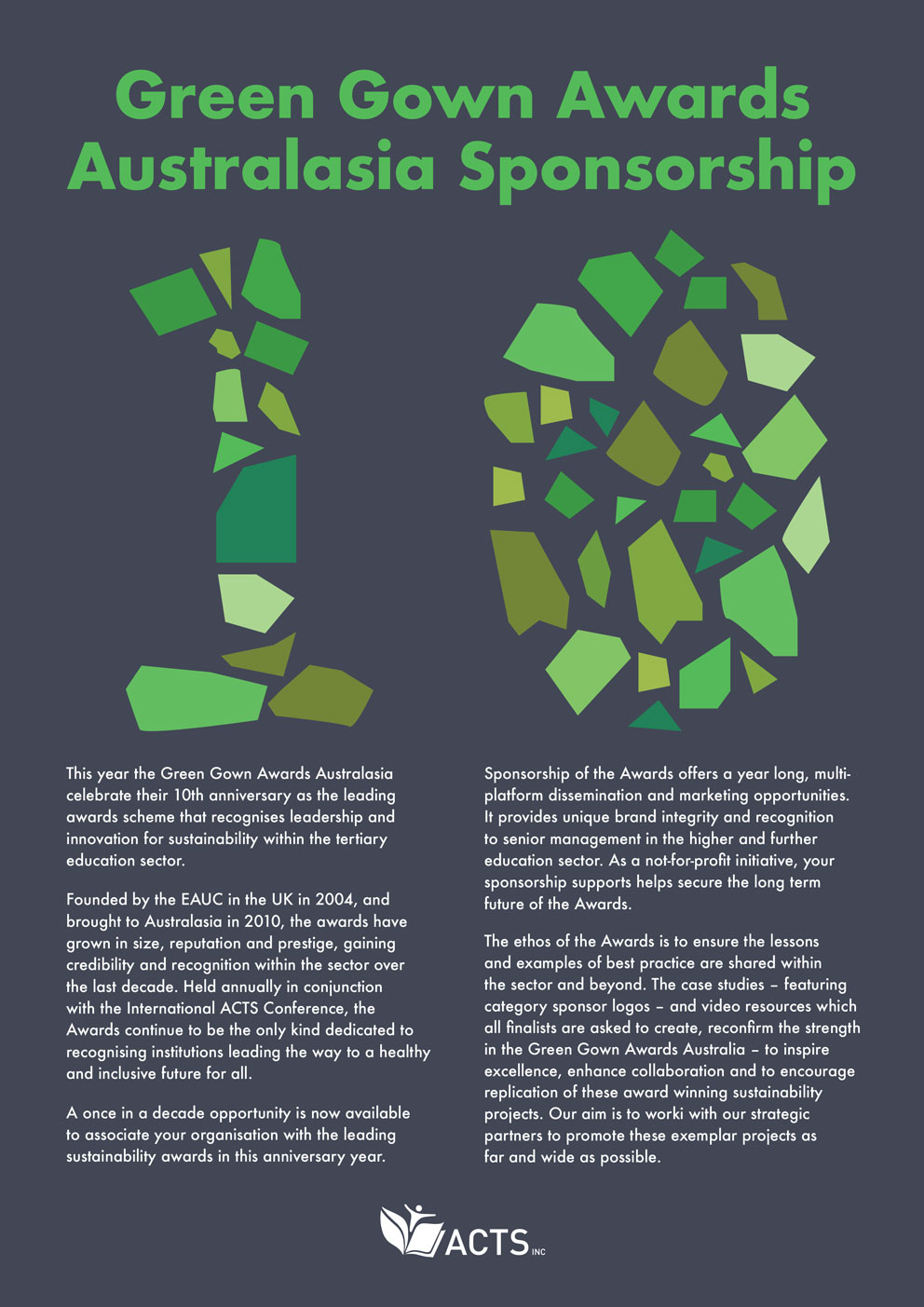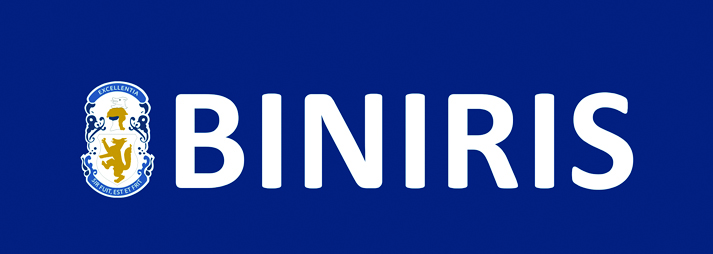2019
Thursday 14 November
Larnach Castle, Dunedin, New Zealand
28 finalists from 19 institutions
8 winners representing 7 institutions
2030 Climate Action
W I N N E R
UQ is one of the largest energy users among Australasian universities. A successful energy management program has reduced electricity usage by almost 15% since its peak in 2014 and UQ has been an early leader in clean energy deployment.
To build on these successes, UQ committed to being 100% renewable by 2020. Rather than signing a contract, however, the University committed to a build, own, and operate model for the $125 million Warwick Solar Farm — a first in the world for a University and a demonstration of UQ’s commitment to walk the talk on climate action.
This Green Gown Award for the Warwick Solar Farm recognises UQ’s sustainability leadership and endorses our bold vision to be the first major university in the world to generate 100 per cent of its electricity from its own renewable energy asset. UQ is demonstrating what is possible.
Top 3 learnings
Benefitting Society
W I N N E R
The Yanama budyari gumada ‘walk with good spirit’ research collective is based on Darug Country, at Yellomundee Regional Park, Western Sydney. Led by Indigenous Darug custodian Uncle Lexodious Dadd, and involving NSW National Parks & Wildlife Service and researchers and students from Newcastle and Macquarie universities, together we run the Darug Caring-as-Country project. We work hard to rekindle Indigenous ‘Caring-as-Country’ mechanisms on national parks estate, and have facilitated 17 Darug cultural camps between 2016-2019, enabling 450+ people to enhance environmental stewardship of Yellomundee by connecting deeply with Darug Country, culture, knowledge and language. We share our important collaborative learnings widely, through documentary film, research publications, policy interactions, and social media.
Macquarie University and our Yanama budyari gumada project partners – project leader Uncle Lexodious Dadd, University of Newcastle and NSW NPWS – are delighted and honoured to receive the “Benefitting Society” Australasian Green Gown Award for this important work towards enhancing ecological and social sustainability on Darug Country, Western Sydney.
Top 3 learnings
Continuous Improvement – Institutional Change
W I N N E R
When Charles Sturt University adopted the Learning in Future Environments Index in 2012, and embedded as a KPI in the university strategy, the path was set for an ongoing commitment towards best practice across the whole-institution. Headline achievements include: being the first certified carbon neutral tertiary institution; Graduate Learning Outcomes incorporating sustainable practices; our Research Narrative framed around ‘creating a world worth living in;’ establishing in one of Australia’s largest rooftop solar energy systems by 2019; and investing $996,000 in sustainability & research grants between 2009 and 2018. Charles Sturt has demonstrated improvement each year.
This is recognition that our structured approach to continuous improvement, as guided by the LiFE Index, is generating positive behaviour change and ongoing financial savings. The GGAA gives Charles Sturt further recognition and credibility as a University committed to a sustainable future and providing inspiration to our students, staff and regional communities that are so critical to our success.
Top 3 learnings
Creating Impact
W I N N E R
Bees@UniMelb plays an important role in meeting the University’s commitment to develop and maintain its campuses as living laboratories of sustainable communities. The initiative aims to educate staff and students about bees and beekeeping, utilising 5 hives located across two campuses.
The initiative launched in 2016 with a small start-up investment. The program is now self-funded entirely via honey sales and managed by a passionate group of staff and student volunteers.
In addition to making delicious honey, the bees contribute to inner city fruit and vegetable production by pollinating neighbouring gardens, whilst providing unique learning and teaching, research and engagement opportunities.
As a living laboratory, Bees@UniMelb demonstrates the importance of a sustainable ecosystem. This Green Gown award is fantastic recognition of a dedicated group of colleagues and students keen to share their knowledge and skills with the community. Congratulations to our passionate researchers and beekeepers.
Top 3 learnings
H I G H L Y C O M M E N D E D
Students and staff from the Roseworthy agricultural campus have transformed an under-utilised patch of grass into a thriving edible garden, with 90% of materials used being reclaimed, restored or repurposed. Beyond delivery of a sustainable and functional garden, this project has provided an opportunity for the Roseworthy campus community to start conversations, share practical skills and build relationships. From planning and design, to construction, planting and harvesting, the garden has been a collaborative effort between student residents, grounds staff and local volunteers. On a small campus, this unique garden is having a big impact.
Learning, Teaching & Skills
W I N N E R
Victoria’s creative sustainable design curriculum prospers from community engagement and prioritisation of a place-based context. Through the synthesis of theory, practice, and real-world application, students from different fields of study are empowered as agents of change to deliver on the SDGs. The courses building the framework of this curriculum bridge three year-levels and support a clear trajectory to postgraduate study.
A Green Gown Award is well-deserved recognition for the Victoria University community. Victoria is a leader in this area—our staff and students have embraced the concept of sustainability and continue to work hard to make our University a truly sustainable institution.
Top 3 learnings
Student Engagement
W I N N E R
The Solar Decathlon competition challenges teams of university students to design, build and operate solar-powered houses that are innovative, energy-efficient and attractive. The University of Wollongong’s “Desert Rose” project involved students and staff from all five faculties and TAFE NSW. This team of students and staff have worked tirelessly to demonstrate the possibility of building a sustainable energy-efficient home that also meets the needs of an aging population. Team UOW achieved second place overall in the Solar Decathlon Middle East 2018 competition along with 8 other awards. “The Desert Rose” is the first dementia-friendly home in a Solar Decathlon.
The University of Wollongong aspires to drive awareness and commitment to sustainability in Australia. To have our students, researchers and collaborators recognised for their outstanding contribution to this mission with a Green Gown Award – the most prestigious recognition of best practice within the tertiary education sector – is exceptional. I am delighted!
Top 3 learnings
H I G H L Y C O M M E N D E D
Repower the Tasmania University Union is an outstanding example of students’ engagement and students and professional staff collaboration for sustainability. The project delivered the first 100% student-funded on-site renewably powered Australasian student union, highlighted to students that renewable energy is a viable climate change response and leveraged opportunities to support student leaders. The project delivers an emissions reduction of ~19 t CO2–e per year via a 71kW photovoltaic system installed in three stages and energy audits delivering reduced energy consumption. Avoided TUU energy costs are re-invested in internships through the GGAA winning Sustainability Integration Program for Students.
ACTS Award of Excellence – Staff
W I N N E R
Dennis Frost has shown vision and leadership in developing innovative strategies and projects which have saved energy and reduced the University’s environmental impact, including:
- Leadership in the development of the Carbon Management Plan and USC’s commitment to carbon neutrality by 2025
- Vision for and delivery of leading-edge energy efficiency initiatives, including implementation of smart controls to reduce energy use by 58% in lecture theatres and 49% in the library
- Vision for and leadership of current large-scale solar and chilled-water project, with an industry partner, resulting in additional 42% reduction of grid energy use for Sippy Downs campus, at nil capex to the University
- Engagement with lecturers to develop ongoing content and learnings from above project for inclusion within engineering and business curricula
- Leadership of initiative to stop selling bottled water on-campus and implement refill alternatives.
Dennis has demonstrated a vision for the future, which is bold and innovative, yet practical and achievable. In doing so, he has assisted USC to demonstrate leadership in sustainability at local, regional and national level.
ACTS Award of Excellence – Student
W I N N E R
Clayton McDowell is a PhD candidate at the University of Wollongong’s Sustainable Buildings Research Centre who inspired 200+ students, 30+ staff and 86 industry partners to come together and think of a cause bigger than themselves. Clayton’s research into energy efficiency retrofitting of homes of low income elderly people in the Illawarra stirred him to form Team UOW, with the purpose of proving to the world that it is possible to create sustainable net-zero energy homes that also improve the quality of life of people living with aged related disabilities such as dementia. As Project Manager and student leader he guided the team through the design, construction and operation of the Desert Rose House, ultimately achieving the silver medal in the Solar Decathlon Middle East 2018 competition and eight other awards. Through this project Clayton and his team have reached over 10 million people inspiring the homes of the future.
H I G H L Y C O M M E N D E D
Raveena has been a driver for sustainability and change across the campus as a student, for many years. She is an extremely passionate person who is involved in a whole suite of sustainability initiatives to encourage positive change within the community, whilst completing her studies in a Master of Environment.
- Selected and trained as a Climate Reality Leader in 2019
- Green Impact Project assistant 2017, 2018
- Currently working with the UoM Sustainability team in the student ‘Engagement Officer’ role, delivering the Green Impact program University wide
- Social Chair of the Post-Graduate Environment Network (PEN), 2017-2018, Vice-President of the Post-Graduate Environment Network (PEN), 2018-2019
- Active member of the Fairtrade Steering committee and Sustainability Advocates forum at UoM, since 2017
- Interned at the City of Whittlesea Council 2017
- Avid writer for scientific scribbles and the University of Melbourne Pursuit Magazine about The Future of Climate Refugees
- Volunteer for the Carbon Market Institute at the 4th Australasian Emissions Reductions Summit in 2017
- Working for Bhumi Fairtrade Organic Cotton since 2013




